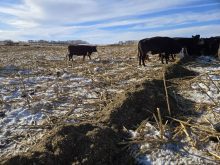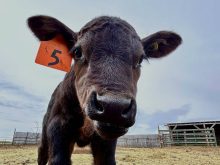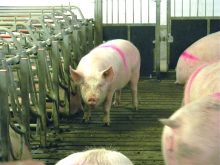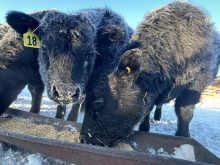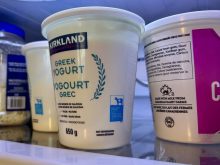The health benefits of conjugated linoleic acid (CLA) and other beneficial natural fats still look promising, but grass-fed beef may not be the way to get an extra dose.
The Beef Cattle Research Council (BCRC) has stopped funding studies into whether diet can increase CLA content in beef, said science director Reynold Bergen.
“We are content with our knowledge of CLA,” Bergen said.
He said grass-finished cattle do end up with more CLA in marbling fat than grain-finished beef. However, he said since there’s less marbling in grass-finished beef, the effect is a wash.
Read Also
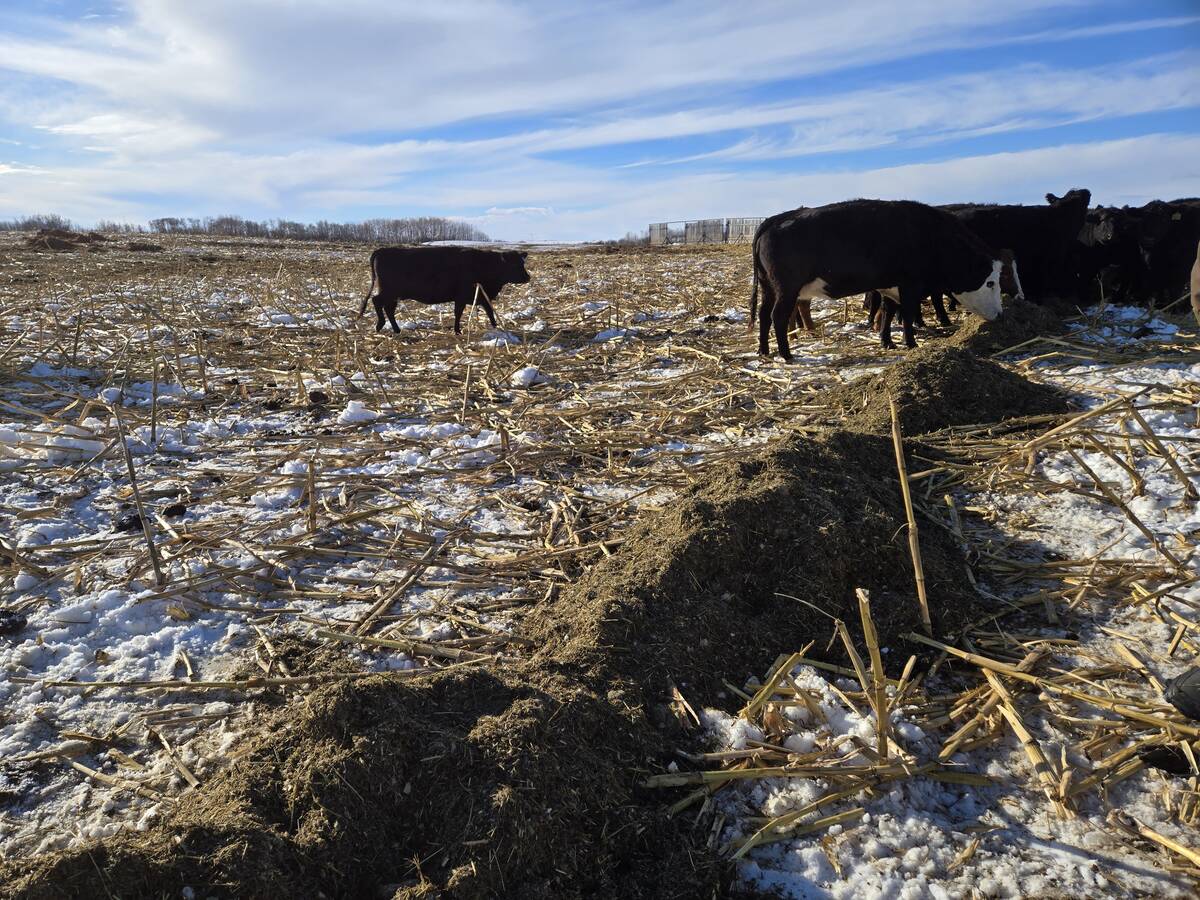
Winter grazing tour highlights cost-saving mix of cover crops and silage
Discover one beef producer’s strategies to slash winter feed costs — and how to make sure it meets a cattle’s nutritional needs.
“On a per-steak basis you get just as much CLA in grain fed as grass fed,” Bergen said.
The BCRC supported a number of CLA projects for about five years, but hasn’t initiated any since about 2008. While trans fat from hydrogenated vegetable oil is a serious health threat, natural trans fats such as CLA have been claimed as reducing cardiovascular disease risks. However, there’s some doubt humans could consume enough CLA in beef to make a difference.
“The doses of CLA that they fed those lab animals are way higher than you’d ever get in any kind of realistic diet,” Bergen said.
Bergen said while feeding cattle things like sunflower seeds can increase CLA levels, it’s still miles away from the level where it’s a benefit. And he noted that many people trim the non-marbling fat from steaks anyway.
“There’s never been a verified human health benefit and there’s certainly no Health Canada label claim for CLA,” Bergen said.
Another challenge would be for a big packer to keep the CLA-enhanced carcasses separate, but there might be an opportunity for a niche market producer.
However, the Beef Cattle Research Council continues funding research into fatty acids in general, in part because Health Canada had wanted to impose trans fat labelling on products, though items like beef and pork were excluded because the fats were naturally occurring.
“We are still funding research into beef fatty acid composition, but it’s more just so we can understand what’s there rather than so we can find a marketing angle,” Bergen said.
Research continues
At the University of Alberta, research into CLA and other natural trans fats continues at the Metabolic and Cardiovascular Disease Laboratory.
Flora Wang, a post-doctoral fellow who studies natural trans fats, said her group is looking at more than just CLA.
“People found it might reduce risk for cancer or certain cardiovascular disease and that’s why our group is interested,” she said.
She said studies looking at CLA have been going on worldwide for about 10 years.
Wang said their research has found CLA and another trans fat called vaccenic acid are two of the most abundant natural fats in dairy fat. In her group’s work, like the research funded by the BCRC, they’ve been looking for ways to increase CLA in dairy fats by feeding the cattle a diet high in products like sunflower seeds or flaxseed.
“All dairy products that contain fats would contain a higher proportion of natural trans fats if we modulate the diet of the cows,” she said. Concern over what increasing CLA means for other trans fats led to her examining vaccenic acid.
She has a rat-based model that shows the rodents that were treated with the natural trans fats in the early stages of obesity and pre-diabetes had their major cardiovascular risk factors reduced, which she said was “quite surprising and exciting.” Animal trials with trans fats continue, and they have received Canadian Institute of Health Research funding to go ahead with human trials testing vaccenic acid, Wang said.
If clinical studies show natural trans fat is actually beneficial, it could be a driving force to get the industry to produce products high in natural trans fats, she said.
One of the group’s side projects is communicating with Health Canada to try and change the way trans fatty acids are labelled on food, separating out the natural trans fats.
“Most of them are natural trans fats and may not be bad for you,” Wang said.


